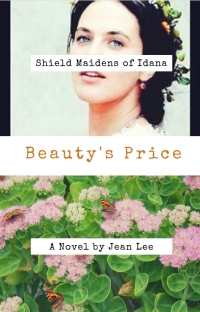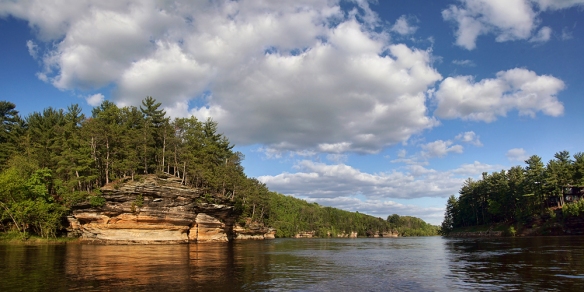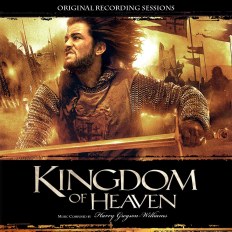 In my previous post on voice changery, I spoke of finding the right book with a character to inspire the voice of your hero. This isn’t to say you’re trying to build a carbon copy of a character you really liked in another book—hardly that. Rather, it’s all about discovering the unique rhythms, quirks, and language of your hero’s speech. I’ve got four different female heroes to write about in my series, and sure as Hades don’t want them all to sound the same. Wynne, key protagonist in my current WIP Beauty’s Price, is inspired by Elizabeth Bennet in Jane Austen’s Pride and Prejudice. Austen tells Elizabeth’s story with a sweet–and some well-timed sassy–lyrical prose. The rhythm and melody rise and fall and rise again, just as the heart of Elizabeth as it slowly wakens itself to love another. This sort of sweet, lyrical connection between style and emotion is just what I want for Wynne.
In my previous post on voice changery, I spoke of finding the right book with a character to inspire the voice of your hero. This isn’t to say you’re trying to build a carbon copy of a character you really liked in another book—hardly that. Rather, it’s all about discovering the unique rhythms, quirks, and language of your hero’s speech. I’ve got four different female heroes to write about in my series, and sure as Hades don’t want them all to sound the same. Wynne, key protagonist in my current WIP Beauty’s Price, is inspired by Elizabeth Bennet in Jane Austen’s Pride and Prejudice. Austen tells Elizabeth’s story with a sweet–and some well-timed sassy–lyrical prose. The rhythm and melody rise and fall and rise again, just as the heart of Elizabeth as it slowly wakens itself to love another. This sort of sweet, lyrical connection between style and emotion is just what I want for Wynne.
But reading the words of another isn’t enough for me. I’ve often talked about the importance of music in helping me write. I needed to find a theme for Wynne, one that would help me see her part of life in Idana and get into her head.
First, her life at home. I remembered dedicating several pages to Meredydd’s manor and the woods surrounding it. Wynne would need something similar…sort of. Her father is a trader, so they won’t have their own manor to run. They’ll live in a trading town…one along a river…

The Dells of the Wisconsin River – unique sandstone formations that occur only in a couple places in the world.
Now Wisconsin is rich in waterways, many of them hidden by bluffs and valleys. I see…something. I see Wynne on a hillside, looking down upon the river, wide and strong by her town, wide enough for two lanes of barges, following and fighting the current. I see a collection of wooden buildings, enough to warrant some streets. I see the watermill to the north to help those who farmed, and a tannery at the south, wreaking havoc on the land around it with all its filth and toxins.
And I see Wynne really, really hating that.
I have a few photos of Wisconsin like this, but a bit too industrial for my liking:

La Crosse

Port of Green Bay
I need a visual of something on a smaller scale. But you saw my town; even those built around the river have long since stopped treating the river as anything other than a pretty touch to the town’s atmosphere. Oh, look, a charming river with a charming bridge. And there’s some charming families catching fish for fun, how all so very charming.
 So I need to think of a town dependent upon its river. Considering the early Medieval style of everything, I have only one frame of context from which I can easily draw: Ellis Peters’ Cadfael mysteries. (Like it’d be anything but murder mysteries.)
So I need to think of a town dependent upon its river. Considering the early Medieval style of everything, I have only one frame of context from which I can easily draw: Ellis Peters’ Cadfael mysteries. (Like it’d be anything but murder mysteries.)
Not my usual dose of photography, but I knew an episode or two would help me see people interact within a medieval town. Too often we’ve romanticized life of that period (something the amazing Terry Jones discusses in Medieval Lives, a series both hilarious and instructive), and I wanted something not afraid of dirt. The splintering planks upon the homes. Various piles of horse dung in the road. Chickens with curious escaping skills. Few windows. Few rooms. Few extras in life. Fences, though, those would be useful.
Forms were taking shape. Time for some color and life:

Time for music.
So far I had been digging through scores of period movies, such as Harry Gregson-Williams’ Kingdom of Heaven. It’s on this score where I found the music that embodied the busy trading center of Wynne’s town:
The reeds are soft with summer, and the river sings when the sun shines upon her. Listen with me. Does not the water over stones make you think of lyre strings? I like to sit here, where the tannery does not hurt the water so. The goddess has been kind so far, but I have no doubt a day will come when she finds herself too sickened by the town’s industry, and we will all wake to find our river gone. Never underestimate a goddess—or any girl, I think—of strong mind.
North of town, the water dances like my feet. When the sun warms skin, when the bees feast among the blossoms, when the fish leap from water for dragonflies, I am able to forget the grime and odors of town, and turn to kinder, better things.
My father is due to arrive with a caravan today, and my mother has stressed all daughters must be present for his arrival. Will you walk with me, at least to town? It is but a few rolling hills away.
I am thankful for these fertile slopes. The river’s happy waters grow stronger crops here. Take care with your feet lest you find yourself trampling a seedling or droppings. I do not like to task the farmers. Visiting caravans are rarely kind to them, and never face punishment for gleaning. Step this way, please, to the oxen-path. The river flows as falling stars before the town, yet we send it off soiled and used. Abused, I should say, but a merchant’s daughter is not allowed such thoughts. Trade is life, and industry is trade. At least the tannery is there, a short ways south of town, so the water is not so terrible until the town’s end. The mill for carrying water to the fields is at the northernmost, see it? Rather hidden by the trees, I know, but if you ignore the farmer yelling at the mule, you can just hear the clack-clack of the buckets tipping.
This town is neither manor nor city. There is a street of homes, true, and it connects to the hostel street, which turns there, sharply, for the ancestral shrine, annoying river and land caravans alike. We must have good pasture for livestock, a stretch of sand for small boats and long docks for bigger barges. Our high street is dedicated to eateries and hostels. We are a perpetual hayloft for travelers, with our own wares barely noticed. Perhaps that is best. Those attracted to our town are not the sort I care to think about.
Mind our rock fences–they are rather low, I’m afraid, just enough to scrape one’s ankle terribly if not careful. Turn here. Market street may look wide enough for a joust, but that is only because the selling carts have left for the day. They sit in the middle, and the shops remove their shelf-shutters, and this place soon overflows with traveling caravans, farmer’s wares, the tannery’s wares, and tinkers. Even artisans from villages nearby will come once a month before midday to set up near the edge of market for the sake of shadow from the sun.
Why do you look at me like that? I have lived here long enough to see a pattern, that is all.
Ah, here we are. Yes, the house with the wooden fence at waist height. Can’t afford to block the view of potential suitors. Just as an artisan proudly displays his wares, my mother makes an exhibition of her children for potential wooing. We’re quite the collection, my sisters and I.
While Wynne grew up in the town, readers are new to this corner of Idana. I needed that flavor of town life, which was only barely tasted in Middler’s Pride. The rhythms would be familiar to Wynne, its melodies bittersweet. After all, she was never allowed to befriend anyone in the town. She witnesses life happening, but can only interact with it as a bird in a cage.
This sense of isolation, love, and desperation reminded me of Anne Dudley’s score to Tristan and Isolde. I’ve used this score before, but I’d never felt it bond with a story so well as with this one. The story of lovers kept apart vibrates in the strings as the piano keys slowly dance round a hope, the smallest hope that refuses to leave the heart.
Wynne’s heart never loses hope, or love, no matter the confinement or pressure put upon her. I need to continue exploring music to find her spirit (and perhaps the spirit of her antagonist, too), but capturing her heart’s song has helped me discover more of her voice: the hope that fills it, the sadness that trails it.
Find the heart’s song of your hero, and watch her deepest passions resonate with the setting, other characters, and most importantly, your readers.
